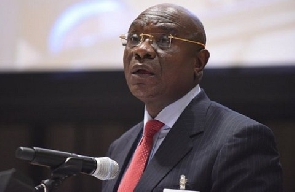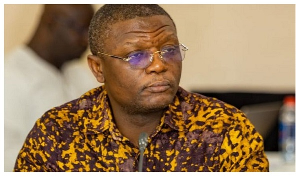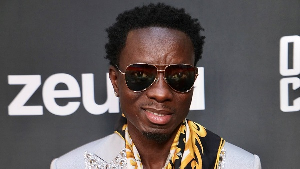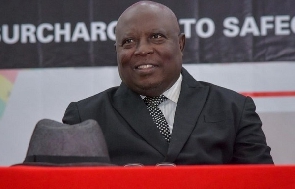University of Cape Coast—Cape Coast.
17th August, 2012
Last week, the day set aside to focus on the youth, August 12th passed quietly. The UN theme for this year was: BUILDING A BETTER WORLD; PARTNERING WITH THE YOUTH.
Unfortunately, with the exception of Former President Rawlings who was visited by some youth and gave an interview, there was little done in our country to note this important day. Most parties left their Youth Organizers to issue desultory statements.
After all, who has time for the youth when we have more important things to do—like mourning our departed President, visiting his graveside to pay respects on government time, insulting one another, organizing beauty pageants, gossiping about our stars and all manner of other things.
But it was not supposed to be this way. The developing world and particularly Africa is home to significant numbers of the youth. According to experts, both in the AU and the UN, two-thirds of Africa’s population are below 35 years and four out of every five young people live in developing countries.
In survey after survey, the problems facing our young people have been identified as unemployment, education, lack of a voice in issues affecting them and health.
The evidence for the neglect of our youth is all around us.
Think of this. The Olympic Games just ended and despite our teeming numbers of youth and our representation, Africa did not make much of an impact. Indeed, five countries won at least as many gold medals as Africa’s eleven (pending disqualifications etc that may happen later.) Despite our poor showing, the problem is not due to ability or enthusiasm on the part of our youth. Blacks, competing for the United States, Britain, Jamaica and many other countries did make quite an impact, led by headliners like Usain Bolt and Gabby Douglas. Responding to the limitless opportunities showcased by athletes from advanced countries, Africa’s Olympians have been deserting their delegations in droves after the Olympics. Over a dozen have vanished into the neighbourhoods of Britain already.
Back here at home, it is not as if we are not aware of our youth. We use their brawn quite often but even when we have good intentions, our deeds do not match these intentions.
We preach about the value of education and yet educate the youth in a failure-oriented system that leads about half of them to fail their JSS exams every year.
We get involved in chieftaincy disputes and send them to fight, neighbor against neighbor and brother against brother.
We send them to Universities that release them into the world without the requisite skills for the jobs out there.
We have set up a National Service system that was supposed to teach them the enduring value of service but does not. Indeed, perhaps the most enduring lesson for most of our youth from their National Service experience is that connections to people in high places matter in getting a good placement.
We urge them to join our political parties and then often, turn them into instruments for insults and violence. And then we reward the most obnoxious with success out of proportion to our nation’s resources--- teaching them tragically that politics has more to do with private gain than public service.
We bring them to our churches and then indoctrinate them in mindless materialism, often at the expense of their spiritual development.
We model for them a society that accepts and glorifies success at any cost. In pursuit of this, we urge them, if they are women, to pursue men of wealth instead of men of character.
Indeed, we have failed our youth.
And they have been our willing accomplices.
They quarrel vociferously about the control of toilets even while elsewhere, their contemporaries confer about technology.
They happily insult, at the behest of elders, other elders who are old enough to be their parents or grandparents.
The plight of our youth should be important to us because they are our future. While many of those who drop out of JSS can and do turn their lives around, many many more become targets for criminal gangs and enterprises. The thousands of our youth standing by the roadsides in urban areas selling dog-chains, bread and other things will not make us the nation we need to be.
In former President Rawlings interview, “He described as unfortunate what he called the oppressive attitudes governments have inflicted on the youth.” Well. He must know because he ran our government for nearly two decades, half of that as a dictator.
While the former President’s prescriptions may be debated, his devotion to the youth should be admired. Looking ahead, the former President said, “The technological advancement in the world requires the inclusion of vibrant youth in policy formulation and execution.” That will be a good starting point in a more serious effort to lift our youth out of the poverty, ignorance and the hopelessness we have consigned them to.
It is encouraging that the NPP Presidential candidate, Nana Akufo-Addo, has, in this campaign, just as he did four years ago, made education the centerpiece of his campaign. His pledge to make SHS education free is bold and should open the door to a debate of the challenges that the youth face.
Along these lines, it is encouraging that during his NATIONAL ADDRESS, President Mahama focused a bit on the youth.
As an aside, before discussing the President’s comments on the youth, it was interesting that he remarked on the significance of his rise to the Presidency as the first President born after independence and then promptly chose as Vice-President a man born before independence!
In the President’s speech, he said, “I encourage our young people, both men and women, to embrace these qualities in all they do. I encourage them to believe in themselves and to have the confidence to think differently and innovatively whether that involves developing and designing new technologies that can be applied in cost-effective ways to change the day-to-day lives of their communities. Whether it involves having their voices heard by offering input as to how to improve our educational system so that it is more responsive to the needs of students and more effective in teaching the information and skills necessary for our graduates to compete with their peers across the globe-----“
Now, Mr. President, our youth need action, not encouragement from our leaders.
Sir, do you really think our uppity University authorities will heed the views of John Bole or Kobina Asebu when they routinely ignore the views of their faculty offered through UTAG? They need from you and all leaders—bold plans and not platitudes. They have heard too much talk.
Our youth need opportunities to realize their potential. Every year, those lucky enough to leave our shores get to other countries with better opportunities and they make it. They need our help to succeed here.
Mr. President, when you deliver your promised policy address, give us some meat on the youth.
First, tell us your plans about our primary schools that are destroying the future of our children. Second, tell us how you differ with Nana Akufo-Addo on the SHS funding.
Then tell us what you will do about graduate unemployment.
Finally announce that you will participate in the Presidential debates and demand that one of them be focused solely on the youth.
I think it is a shame that every week, white young men and women from Europe and North America come to volunteer their services to the sick here while our able-bodied youth walk around complaining about unemployment. It is this kind of volunteering that should be supported with funds—not party activists looking to harm others and be harmed themselves.
Let us establish a fund to help graduating students turn their best ideas into businesses. Let us stop looking for foreigners to do everything and fund our youth to be self-sufficient.
Let us begin public education about drug abuse and addiction. Young men and women addicted to drugs and in the service of drug cartels will be a liability—not an asset for building our future. That is the alarm sounded in my book, THE DRUG INVASION OF WEST AFRICA.
To the youth, know that while the future belongs to you, you must seize it. If you wait on the old to give you your future, it will never come. You have met the enemy and he/she is largely your parent or grandparents’ generation. As Barrack Obama said, “We are the men we have been waiting for.” It is time to rise up and claim the future.
When we sing “WE SHALL OVERCOME”, let us insist that the “SOMEDAY” in that song must be now—not some indefinite day in the lives of our “nana nkansoa”
Let us move forward—together.
Arthur Kobina Kennedy
Opinions of Sunday, 19 August 2012
Columnist: Kennedy, Arthur Kobina


















